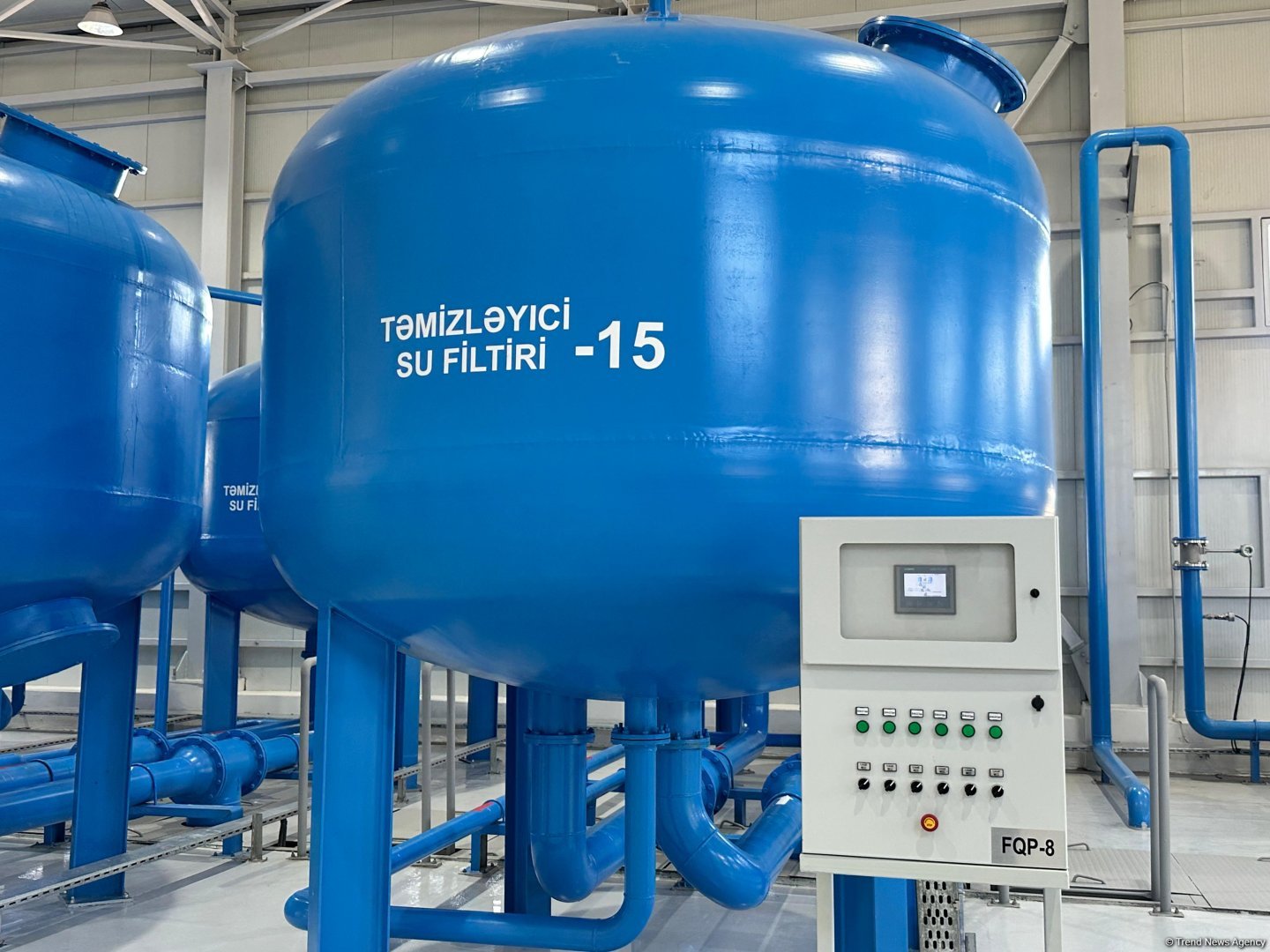YEVLAKH, Azerbaijan, June 24. The water treatment plant in Yevlakh, Azerbaijan, is set to quench the thirst of 70,000 residents, ensuring that the city’s drinking water supply and wastewater services are up to snuff, all while keeping an eye on the future until 2035, Trend reports.
Speaking to reporters, Rauf Aliyev, Chief Engineer at the Yevlakh Department for the Operation of Water and Land Reclamation Systems, stated that under the project, a new drinking water treatment plant with a capacity of 20,000 cubic meters per day will be built.
Plans also include a 139-kilometer-long drinking water network, a 115-kilometer-long wastewater network, five pumping stations, and around 13,000 subscriber connections.
“Additionally, a treatment facility with a daily capacity of 12,500 cubic meters will be built to purify and discharge the city’s wastewater.
As part of the project, a sand-free rapid filtration treatment facility with a daily capacity of 20,000 cubic meters has already been constructed on the bank of the Kura river to ensure a reliable drinking water supply to the city. The plant has 16 filters installed and includes two water reservoirs with a total capacity of 2,500 cubic meters for storing treated water. The facility is equipped with special pumps for disinfection and backwashing processes, as well as a transformer and generator to ensure energy supply. Furthermore, an 86-kilometer-long water distribution network has been constructed, and 4,230 household connections with water meters have been installed," he said.
Yevlakh’s water supply and sewage systems were originally established in the 1950s and 1960s. The city’s main water sources were sub-artesian wells and the Kura river. The 15 sub-artesian wells currently in operation can no longer meet demand. Despite repeated maintenance and capital repairs, the two 27-kilometer-long main pipelines from the well zone to the city were unable to provide a sustainable water supply. Water drawn from the Kura river using pumps was only partially treated before being distributed to consumers. The existing 191-kilometer-long water distribution network in the city had deteriorated after years of use and could no longer meet demand.
In recent years, significant infrastructural initiatives have been executed throughout Azerbaijan to enhance the accessibility of potable water resources. The initiatives encompass the establishment of a centralized laboratory in Baku, alongside the deployment of 9 regional laboratories, and the installation of 8,100 kilometers of wastewater and stormwater infrastructure. A total of 28 wastewater treatment facilities, boasting an aggregate daily throughput of 250,000 cubic meters, have been established across multiple urban and rural locales, inclusive of 5 strategically positioned on the Absheron Peninsula and within the Baku metropolitan area. The ultrafiltration water treatment facility in Jeyranbatan has reached operational status.
Stay up-to-date with more news on Trend News Agency's WhatsApp channel







